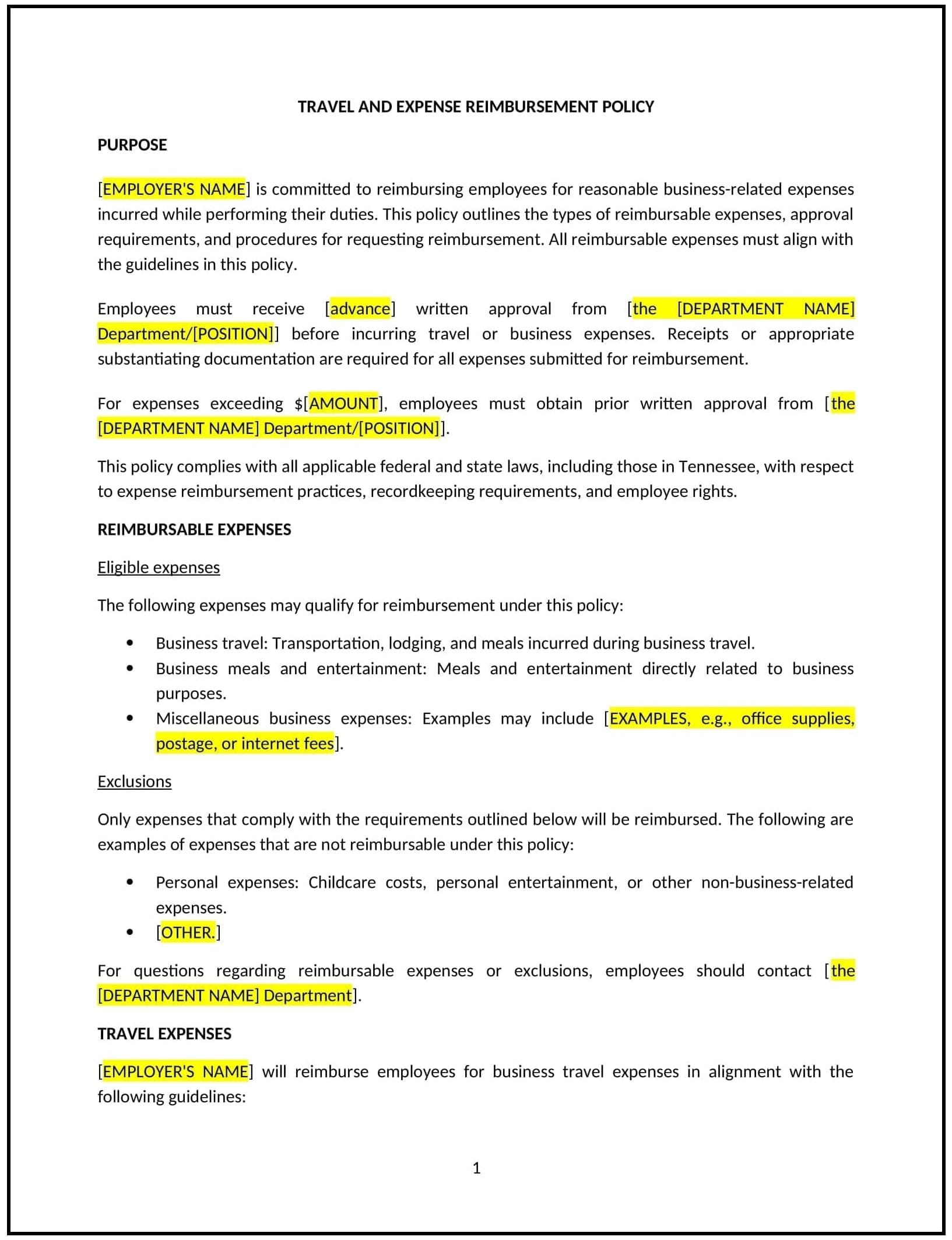Travel and expense reimbursement policy (Tennessee): Free template
Got contracts to review? While you're here for policies, let Cobrief make contract review effortless—start your free review now.

Customize this template for free
Travel and expense reimbursement policy (Tennessee)
This travel and expense reimbursement policy is designed to help Tennessee businesses establish guidelines for employees traveling for work-related purposes. It outlines procedures for submitting expense reports, eligible expenses, and reimbursement timelines.
By adopting this policy, businesses can ensure transparency, reduce financial risks, and align with best practices for travel and expense management.
How to use this travel and expense reimbursement policy (Tennessee)
- Define eligible expenses: Specify what types of expenses are reimbursable, such as airfare, lodging, meals, or transportation.
- Set submission procedures: Provide steps for employees to submit expense reports, including required documentation and deadlines.
- Address approval process: Outline how expense reports will be reviewed and approved, such as by a manager or finance team.
- Establish reimbursement timelines: Explain when employees can expect to receive reimbursements, such as within 14 days of approval.
- Train employees: Educate staff on the policy and proper expense reporting practices.
- Review and update: Assess the policy annually to ensure it aligns with evolving business needs and financial practices.
Benefits of using this travel and expense reimbursement policy (Tennessee)
This policy offers several advantages for Tennessee businesses:
- Ensures transparency: Provides clear guidelines for employees regarding eligible expenses and reimbursement processes.
- Reduces financial risks: Minimizes the potential for fraud or misuse of company funds.
- Enhances efficiency: Streamlines the expense reporting and reimbursement process.
- Builds trust: Demonstrates a commitment to fair and timely reimbursement of employee expenses.
- Aligns with best practices: Supports a structured approach to travel and expense management.
Tips for using this travel and expense reimbursement policy (Tennessee)
- Communicate the policy: Share the policy with employees and include it in the employee handbook.
- Provide training: Educate staff on proper expense reporting practices and the policy’s guidelines.
- Monitor compliance: Regularly review expense reports and reimbursements to ensure adherence.
- Address issues promptly: Take corrective action if expenses are misreported or reimbursement delays occur.
- Update regularly: Assess the policy annually to ensure it aligns with evolving business needs.